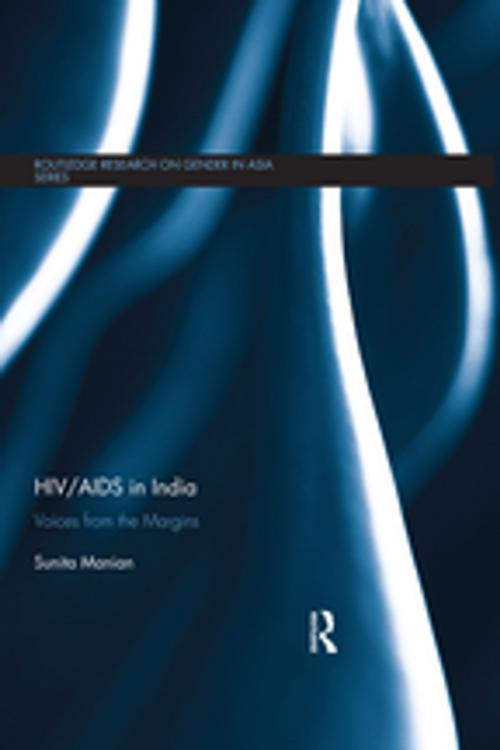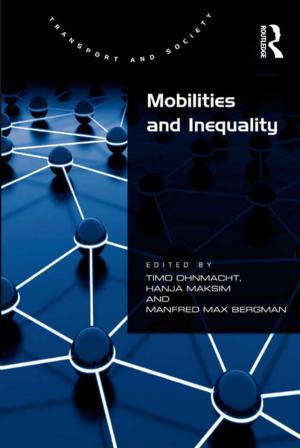HIV/AIDS in India
Voices from the Margins
Nonfiction, Social & Cultural Studies, Social Science, Cultural Studies, Ethnic Studies| Author: | Sunita Manian | ISBN: | 9781351806480 |
| Publisher: | Taylor and Francis | Publication: | June 14, 2017 |
| Imprint: | Routledge | Language: | English |
| Author: | Sunita Manian |
| ISBN: | 9781351806480 |
| Publisher: | Taylor and Francis |
| Publication: | June 14, 2017 |
| Imprint: | Routledge |
| Language: | English |
India ranks third in the number of people living with HIV/AIDS globally. The country has high levels of poverty and inequality, poor healthcare infrastructure, especially away from the metropolitan areas, and a legacy of colonialism that bequeathed laws criminalizing non-heteronormative sexualities. These factors mean that many minority groups do not receive adequate access to preventative and treatment programs.
This book explores the HIV/AIDS epidemic in India. Based on research in Tamil Nadu, it presents experiences of those marginalized by their sexuality and/ or gender, their struggles and their triumphs. Based on interviews with male and female sex-workers, men who have sex with men, aravanis (male to female transgenders) and HIV positive women—groups usually not included in the policy-making by Indian government agencies, international donors and international NGOs—the author uses an interdisciplinary approach. The approach highlights the historical and cultural context, while providing contemporary narratives. The book thus presents a deeper, multi-dimensional, understanding of the context of the disease and comprehends the roots of the stigma and discrimination that exacerbate the epidemic.
An important study of the global HIV/AIDS epidemic, this book will be of interest to researchers in the field of South Asian Studies, Sexuality and Gender Studies, Health Sciences and Public Health.
India ranks third in the number of people living with HIV/AIDS globally. The country has high levels of poverty and inequality, poor healthcare infrastructure, especially away from the metropolitan areas, and a legacy of colonialism that bequeathed laws criminalizing non-heteronormative sexualities. These factors mean that many minority groups do not receive adequate access to preventative and treatment programs.
This book explores the HIV/AIDS epidemic in India. Based on research in Tamil Nadu, it presents experiences of those marginalized by their sexuality and/ or gender, their struggles and their triumphs. Based on interviews with male and female sex-workers, men who have sex with men, aravanis (male to female transgenders) and HIV positive women—groups usually not included in the policy-making by Indian government agencies, international donors and international NGOs—the author uses an interdisciplinary approach. The approach highlights the historical and cultural context, while providing contemporary narratives. The book thus presents a deeper, multi-dimensional, understanding of the context of the disease and comprehends the roots of the stigma and discrimination that exacerbate the epidemic.
An important study of the global HIV/AIDS epidemic, this book will be of interest to researchers in the field of South Asian Studies, Sexuality and Gender Studies, Health Sciences and Public Health.















